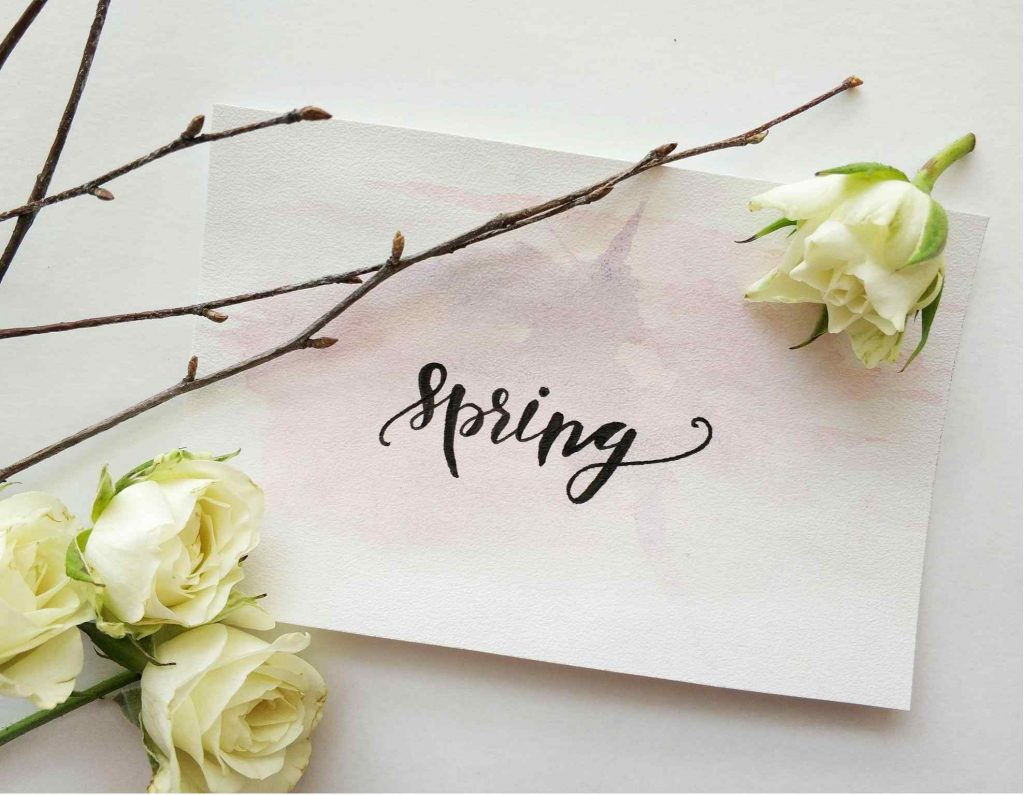Spring Is Here And You Need Care! These 5 Self-Care Practices Will Help…

Saying goodbye to the harsh coldness of the winters is always bittersweet for me. While I love the winter season, there’s something about spring that makes me feel relaxed. However, it’s also the season when many of us (including myself) forget basic self-care.
It’s common, though. Self-care routines do change with the seasons – including our daily schedules and responsibilities. But what many people don’t realize is that adapting to a seasonal self-care routine can benefit our mental well-being.
Self-care may not look any different but it can feel different so it’s important to think about why you need self-care. Another important thing to remember is that you need to practice the self-care routine that suits best for you.
I mean, many people, like me, would prefer to stay indoors and focus on indoor activities for self-care while others may prefer to go on solo walks or do some gardening for self-care. You need to consider what and how your self-care practices make you feel.
Springtime, with it, brings many problems as well. While many of you may be familiar with “winter blues”, more commonly known as a seasonal affective disorder, you may not be aware of reverse SAD or “spring depression”.
The symptoms of spring depression may be a lot different from winter depression but the effects on your mental and emotional health may be the same.
To help you manage spring depression, I have listed below 5 effective, simple, and easy-to-practice daily self-care exercises to help you say goodbye to winter blues and welcome spring with open arms!
Self-Care Things To Do To Welcome Spring

To welcome spring and deal with the onslaught of mixed emotions springtime may bring with it, here are 5 ways to practice self-care and also to help you adjust to a new routine, new season!
1.You Are What You Eat
Spring means an influx of fresh fruits and vegetables, right? So let’s start our first self-care practice by making sure we eat right this spring. Taking care of your physical health can be detrimental to your mental self-care so make sure you get adequate vitamins and minerals to reduce the depressive-like symptoms and increase optimism.
Apart from this, getting fresh spring produce can in itself be a motivator to try new recipes. Connect with yourself and add fresh spring produce into your diet this season. Produce such as green vegetables, asparagus, apricots, and strawberries are great foods to add to your diet.
2.Under The Sunlight
Spring means more sunlight so take advantage of it and add more outdoor activities to your daily self-care during springtime. Vitamin D that we get from sunlight can benefit our mental health and that can be achieved by taking short walks or exercising outdoors.
Being in the sunlight (at least 10 minutes at a time) can reduce stress, boost your mood, increase happiness and decrease the risk of depression.
Did you know that spending time in sunlight can even help improve your sleep? Light exposure, the one you lose during winters, can help better your sleep and reduce sleep problems. It can help regulate your circadian rhythm to help you catch deep and restful sleep at night.
3.Flowers Are Happy Things
Who doesn’t like watching flowers bloom during spring? I mean, that’s the charm of springtime, isn’t it? Watching flora come to life, the ones that had laid dormant for months. Bringing the magic of spring aka flowers and plants into your living space can also help brighten your mood.
How can it not be a self-care practice? Many studies show that adding greenery to your personal space during springtime can help you feel connected to nature, especially when you don’t want to step outdoors.
Some houseplants can help reduce depression-like symptoms. The best plants to boost positivity during springtime can include snake plants, bamboo plants, Chinese money plants, morning glory, and more.
4.Boundaries Define Us
Boundaries, no matter the season, are an effective way to practice self-care. Self-care is about making yourself a priority and the best way to do that is to make sure you are protected, mentally and emotionally. So this spring season set boundaries after reflecting on which aspect of your life needs one.
The self-care routines can change with the season so it can always be useful to refresh boundaries every once in a while. You can try to limit social media use, limit the time you spend scrolling through your phone mindlessly, and create more time to focus on your needs and care.
You can also create a “no work” policy and try to wind up your work during work hours. Make sure you don’t bring your work to your downtime. Stick by it, too. It’s another effective way to prevent untimely burnout.
5.Cleaning Equals Mindfulness
Mindfulness is the most effective self-care practice as it requires you to be present in the moment and not focus (or hyperfocus) on the uncertainties of the future. However, mindfulness does not always mean meditation. Mindfulness can come in many shapes and forms, including spring cleaning.
Just like our homes and workspace, we can benefit from cleaning as well. Declutter items that you haven’t used in years. If you don’t use anything, donate them to others in need. The more cluttered space you live in, the more cluttered your mindset would be.
Other self-care practices to try can include:
- Practicing a daily mantraor affirmation before starting your day
- Creating rituals to help ground you before starting the day or before bed
- Practicing deep breathingto calm your anxious nerves down
- Set goals for the spring season
- Keeping fresh flowers in your home to spread lightness and positivity
Getting Help…

When the springtime becomes too much to handle and when the persistent sadness and lethargy refuse to leave or prevent you from welcoming spring, then it is a good option to seek help and consult a therapist.
Did you know that seeking help from a professional is also one of the most effective ways to practice self-care? Therapists can make you feel heard and will not hesitate to listen to your concerns and provide care.
So even if you’re struggling with minor symptoms of spring depression such as fatigue, low motivation, sleep troubles, restlessness, bloating, irregular menstrual cycle, anger, or thoughts of suicide, a therapist will consider them seriously and will be able to provide the right diagnosis and treatment plan.
If you’re having suicidal thoughts, please immediately contact your nearest crisis helpline. You can also reach out to Crisis Text Line by texting HOME to 741741 or call the National Suicide Prevention Lifeline at 1800-273-8255.
I hope these self-care practices during the springtime will help you welcome spring with open arms. What’s your favorite self-care practice to try during springtime? Let us know in the comments below.
You can also share your ideas with us at info@calmsage.com or DM us on social media. Don’t forget to share this article and self-care practices with your friends and family.
“Spring unlocks the flowers to paint the laughing soil.” – Bishop Reginald Heber
Blossom like the flower you are, always, despite the season!
Take care and stay safe.




















